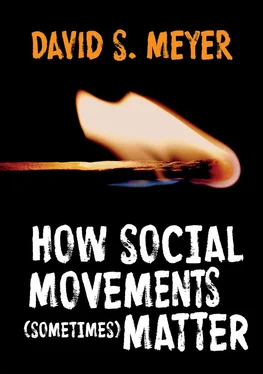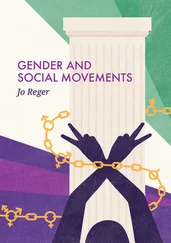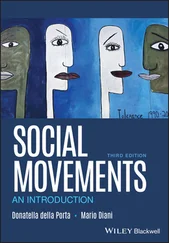We might start by acknowledging that European colonization of the United States began more than 150 years before the Boston Tea Party, and the immigrants were mostly people who were unhappy with their lives under British rule. Generations grew up in America, with British governance only a distant force in the background most of the time. The colonists built local governments and businesses, and conducted their own commerce and conflicts with each other and with the Indigenous people already occupying the continent.
The conflicts that led to the Tea Party can be traced back nearly a decade before that dramatic confrontation. In seeking to finance both current wars and debt from previous wars, King George and Parliament sought to extract as much value from their colonies as possible, imposing taxes on virtually anything that might generate revenue, starting with sugar, then adding glass, lead, paints, and paper. Britain imposed taxes on printed materials and imports generally. It also sought to exercise greater control over governance in the colonies, and maintained a large military presence in the New World. Parliament demanded that the colonists build barracks for the British soldiers and, failing that, to house them in stables, inns, and ale houses and, ultimately, in any vacant space. Parliament also held the colonists responsible for providing the funds to feed and support the British troops.
An organized resistance preceded the Tea Party. Virtually every provocation from Parliament generated a response. Political activists like Samuel Adams produced pamphlets and letters arguing that Parliament could not impose taxes on the colonies without their input. The arguments and letters circulated around the colonies, deepening the ties among the colonists, while building sympathy for the cause of independence. Britain responded with increased force; its efforts to squeeze the colonies all met with resistance, leading to the revocation of some laws, but also intensified conflict. In 1770, protest against the quartering of troops in Boston led to armed confrontation in the streets. In response to the colonists’ harassment of soldiers, British soldiers opened fire on a crowd, resulting in the death of five colonists. There was a level of conflict, often violent and disruptive, that preceded and followed the more theatrical Tea Party, but the better choreographed event has an iconic place in narratives of American history that often edit out more violent events (Schiff 2020).
The point is that a decade of disruption preceded the Tea Party and the Revolution; speeches and pamphlets, intensified by long discussions in parliaments and taverns, occupied a far larger part of the process of building support than the drama of a costumed attack on commerce – even though the Tea Party makes a better story in a history book. Over the period of growing resistance, support for British governance faded in the colonies, a response to both organizing in America and repeated incursions by the British. Efforts to deepen the ties among the colonies, which traced back at least 20 years before the Tea Party, gradually found greater support, as British policy gave the colonists a common enemy. To make sense of the growth of the independence movement and the Tea Party in particular, we need to understand the context in which it developed.
I don’t mean here to provide a comprehensive account of the American Revolution; rather, I want to use this movement to point out the necessity of putting any movement effort in a broader historical and political context. From the example of the Tea Party, we can identify factors that are critical to the emergence, organization, and impact of any significant social movement.
We want to recognize that most people don’t protest most of the time. Although a few committed organizers are virtually always trying to recruit others to their causes, most people think about their personal commitments and aspirations far more than they attend to larger issues of social change. Movements grow and gain the potential of influence when they engage large numbers of people who would otherwise be consumed with work, family and friends, and the pressures and possibilities of everyday life. Protest and political engagement come with some cost, and we have to pay attention to the circumstances under which people will take on the extra work of trying to change their world, rather than just live in it. Most people add social movement participation to their agendas only when they think that something’s wrong, it’s fixable, and that protest might matter.
Social Movements, Events, and Political Context
The world outside a movement is critical to how much that movement can grow, and we can think about that world as offering a set of political opportunities (McAdam 1982; Meyer 2004; Tarrow 2011; Tilly 1978). Potential participants in a social movement look at the world around them when they decide how to respond to an invitation to act. They need to believe that a cause is actionable, and that it’s possible – or safe enough – to join with others (Gamson and Meyer 1996). No matter how good an organizer is, what’s going on in the rest of the world makes it easier or harder to sell his or her message.
Back to the American Revolution: Separated from colonial rule by the Atlantic Ocean, colonists enjoyed the space to do more than a little self-governance. Over time, they built wealth, organizations, and identities that were not exactly “British.” When England began to impose greater restrictions on the colonists’ business and autonomy, it created shared grievances in America, and those grievances contributed to the development of a distinct American identity. Colonists aggrieved by new taxes or restrictions on participation in governance initially tried to resist them; essentially, the first efforts were conservative ones, trying to keep things as they were. When this proved increasingly difficult, support for independence grew as the most viable alternative.
Political opportunities also include the means available to try to advance one’s political interests, and vary for different racial, professional, and class groups, over time, and across different contexts (Bracey 2015). Most people are unlikely to protest if they think they can get what they want by employing more modest means that entail less cost and less risk. Advocates experiment with different ways of getting what they want: writing letters, making speeches, organizing demonstrations, staging theatrical acts of vandalism, and ultimately, in this case, taking up arms and going to war. In the case of the American independence cause, there’s an interaction between social movements and the authorities they challenge – as is always the case in protest movements. When Britain punished the colonists and excluded them from normal institutional politics, it could have crushed the cause altogether; instead, it drove them to war as the best available alternative.
Some of the most educated and affluent people in the colonies were already familiar with philosophical arguments against monarchy, and the beginnings of a liberal philosophy of limited government (Wills 1978), but then, as now, relatively few people find the time to work their way through books of philosophy. As the cause of independence grew, however, Patriots developed ways to translate and promote their ideas to a broader public. A free press circulated work from advocates of independence. Most notably, Thomas Paine, newly arrived in America in 1774, promoted ideas of independence and human rights as “Common Sense” in 1776. The coincidence of the right text with a critical time produced a national bestseller, and gave the Patriots a script to justify their organizing efforts.
Ultimately, the colonists won a war of independence, but the ideas and the organizations inspired citizens of the new nation to demand more. Even as the revolution moved the locus of governance from London to colony capitals, the United States allowed slavery, the continued expansion to Indian territories, and some states did little of consequence to advance the interests of most of their citizens. Farmers in western Massachusetts, seized with the revolutionary spirit, in 1786 armed themselves and occupied a courthouse to protest the difficulties they had in paying debt owed to creditors who mostly controlled the legislature. Shays’ Rebellion helped provoke the Constitutional convention, which strengthened the federal government and made it even more difficult for farmers to get credit on the terms they wanted (Richards 2002). The Constitution also left some supporters of the revolution disappointed or angry. Farmers on the western edge of the early United States, accustomed to distilling their surplus grain for personal use and for sale, resisted a federal tax on domestically produced spirits. Beginning in 1791, recalling the principle of fighting “taxation without representation,” the Whiskey Rebellion included tax evasion, mass meetings and demonstrations, and physical assaults on tax collectors (Slaughter 1986). President Washington led a militia of 13,000 men to put down the rebellion, buttressing the new republic at the expense of the vision of many of those who fought for it.
Читать дальше












